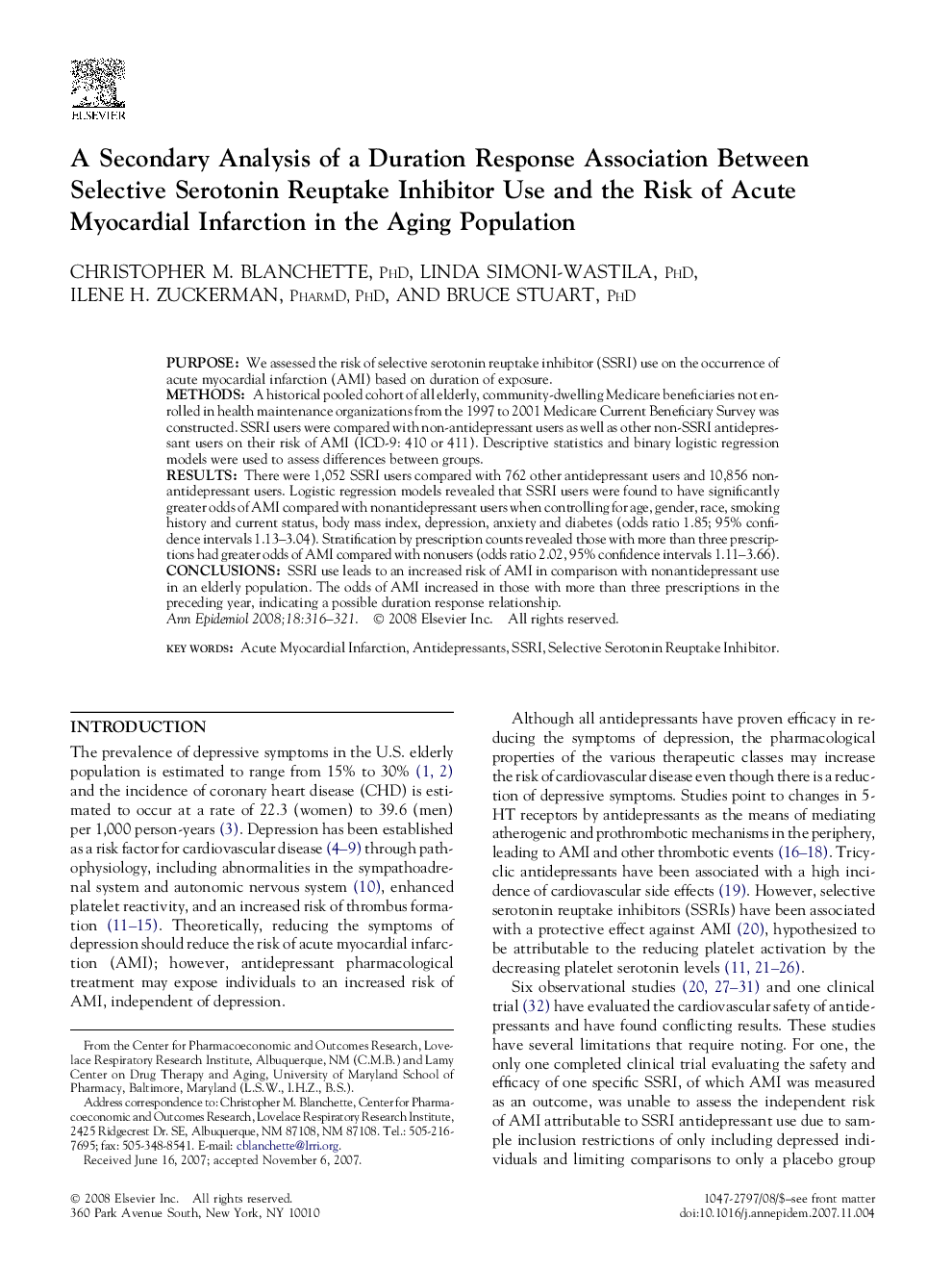| Article ID | Journal | Published Year | Pages | File Type |
|---|---|---|---|---|
| 3445042 | Annals of Epidemiology | 2008 | 6 Pages |
PurposeWe assessed the risk of selective serotonin reuptake inhibitor (SSRI) use on the occurrence of acute myocardial infarction (AMI) based on duration of exposure.MethodsA historical pooled cohort of all elderly, community-dwelling Medicare beneficiaries not enrolled in health maintenance organizations from the 1997 to 2001 Medicare Current Beneficiary Survey was constructed. SSRI users were compared with non-antidepressant users as well as other non-SSRI antidepressant users on their risk of AMI (ICD-9: 410 or 411). Descriptive statistics and binary logistic regression models were used to assess differences between groups.ResultsThere were 1,052 SSRI users compared with 762 other antidepressant users and 10,856 nonantidepressant users. Logistic regression models revealed that SSRI users were found to have significantly greater odds of AMI compared with nonantidepressant users when controlling for age, gender, race, smoking history and current status, body mass index, depression, anxiety and diabetes (odds ratio 1.85; 95% confidence intervals 1.13–3.04). Stratification by prescription counts revealed those with more than three prescriptions had greater odds of AMI compared with nonusers (odds ratio 2.02, 95% confidence intervals 1.11–3.66).ConclusionsSSRI use leads to an increased risk of AMI in comparison with nonantidepressant use in an elderly population. The odds of AMI increased in those with more than three prescriptions in the preceding year, indicating a possible duration response relationship.
